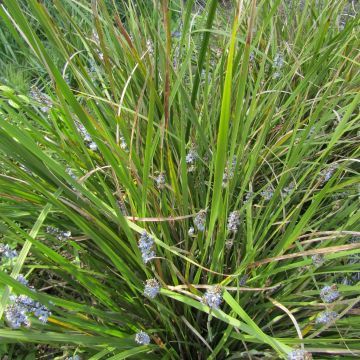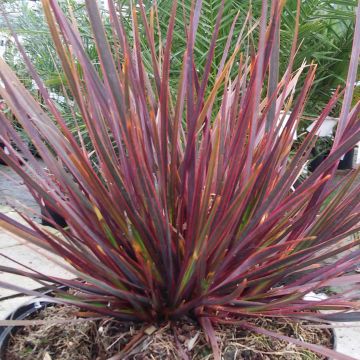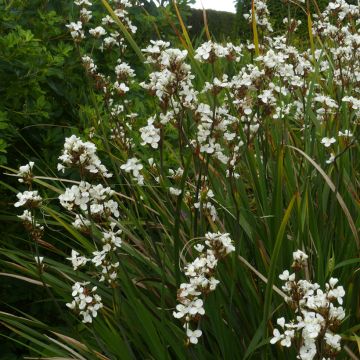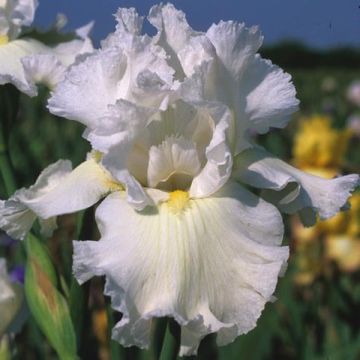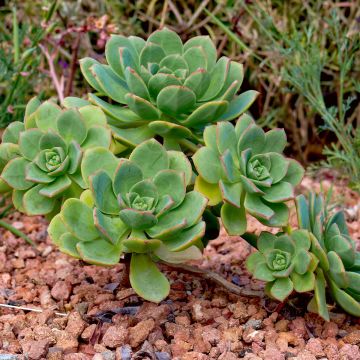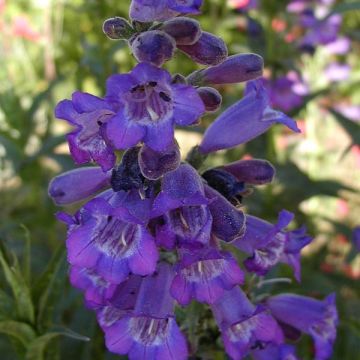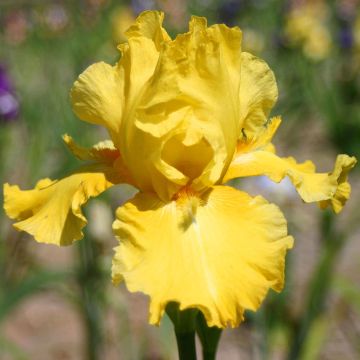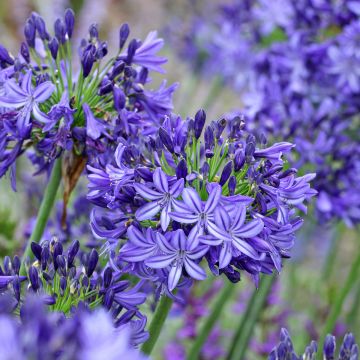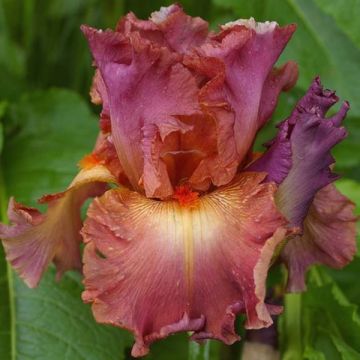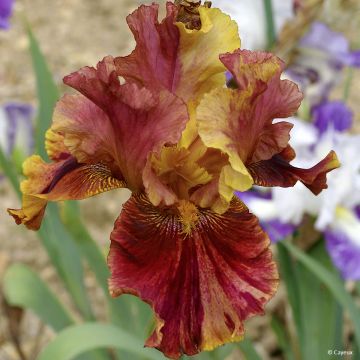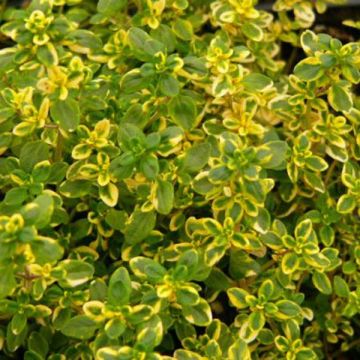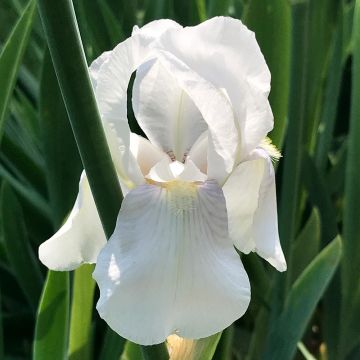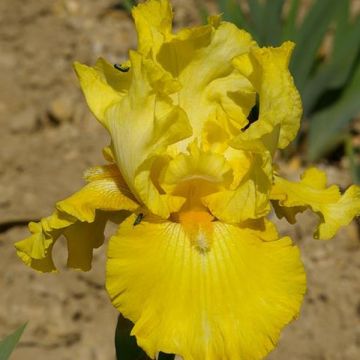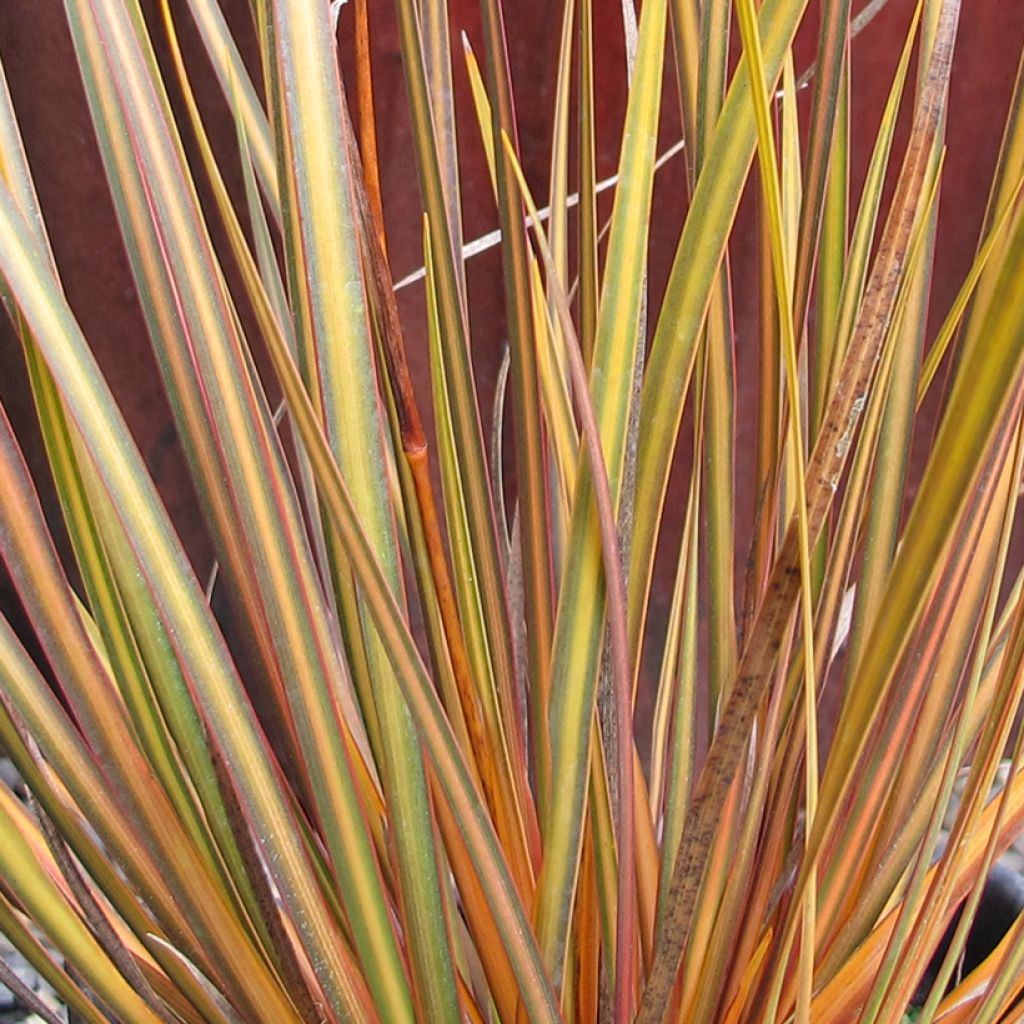

Libertia peregrinans Gold Leaf
Libertia peregrinans Gold Leaf
Libertia peregrinans Gold Leaf
Golden Libertia, New Zealand Iris, Wandering Iris
This plant carries a 12 months recovery warranty
More information
We guarantee the quality of our plants for a full growing cycle, and will replace at our expense any plant that fails to recover under normal climatic and planting conditions.
From €5.90 for pickup delivery and €6.90 for home delivery
Express home delivery from €8.90.
Does this plant fit my garden?
Set up your Plantfit profile →
Description
Libertia peregrinans 'Gold Leaf' is a variety of New Zealand Iris selected for its olive green foliage that turns amber-yellow in autumn and then orange in winter. This grasslike perennial plant slowly spreads through its rhizomes. It is also interesting for its delicate white summer flowering, carried by slender stems hidden in the foliage. This plant is ideally planted in non-limestone, moist, but well-drained soil, in a sunny location. Adapted to mild winters, it grows very well in pots, where it is very effective.
Libertia peregrinans is a botanical species native to New Zealand belonging to the Iridaceae family. This perennial plant develops laterally through long branching rhizomes forming scattered clumps and eventually large mats. Its growth is moderately fast and its crown dies below -8°C.
Libertia 'Gold Leaf' is a horticultural selection that is slightly shorter but more colourful. The plant forms a dense, stiff clump, weakly spreading in all directions. The plant develops foliage composed of stiff, linear, olive-green leaves with a very pronounced midrib. They take on an amber-yellow colour in autumn, more orange in winter. In late spring and early summer (June-July), short, 30-35 cm tall, thin, bronze yellowish green floral stems appear between the leaves, carrying panicles of 3 to 6 flowers. Each flower measures 1.5 to 2 cm in diameter and consists of three white petals sheathed in a bract. The centre of the corolla is filled with yellow stamens with orange-brown anthers.
Libertia peregrinans 'Gold Leaf' is at home in mild oceanic climates. Truly attractive in many ways, it is beautiful in water gardens with a wild or even Asian-inspired design. You can associate it with Sisyrinchiums, Crocosmia crocosmiiflora 'Emily McKenzie', or low-growing agapanthus, for example. This perennial will also be appreciated in containers, on the terrace or balcony.
Report an error about the product description
Flowering
Foliage
Plant habit
Botanical data
Libertia
peregrinans
Gold Leaf
Iridaceae
Golden Libertia, New Zealand Iris, Wandering Iris
Oceania
Other Libertia
Planting and care
Coastal areas can successfully host Libertias, as they thrive in regions with high atmospheric humidity and not too dry summers. They can be grown outdoors with relative ease, provided they are given a warm location. In colder climates, they should be cultivated in pots and brought indoors to a frost-free area. They require well-drained soil in winter, not too dry in summer, preferably without limestone.
Planting period
Intended location
Care
This item has not been reviewed yet - be the first to leave a review about it.
Mediterranean perennials
Haven't found what you were looking for?
Hardiness is the lowest winter temperature a plant can endure without suffering serious damage or even dying. However, hardiness is affected by location (a sheltered area, such as a patio), protection (winter cover) and soil type (hardiness is improved by well-drained soil).

Photo Sharing Terms & Conditions
In order to encourage gardeners to interact and share their experiences, Promesse de fleurs offers various media enabling content to be uploaded onto its Site - in particular via the ‘Photo sharing’ module.
The User agrees to refrain from:
- Posting any content that is illegal, prejudicial, insulting, racist, inciteful to hatred, revisionist, contrary to public decency, that infringes on privacy or on the privacy rights of third parties, in particular the publicity rights of persons and goods, intellectual property rights, or the right to privacy.
- Submitting content on behalf of a third party;
- Impersonate the identity of a third party and/or publish any personal information about a third party;
In general, the User undertakes to refrain from any unethical behaviour.
All Content (in particular text, comments, files, images, photos, videos, creative works, etc.), which may be subject to property or intellectual property rights, image or other private rights, shall remain the property of the User, subject to the limited rights granted by the terms of the licence granted by Promesse de fleurs as stated below. Users are at liberty to publish or not to publish such Content on the Site, notably via the ‘Photo Sharing’ facility, and accept that this Content shall be made public and freely accessible, notably on the Internet.
Users further acknowledge, undertake to have ,and guarantee that they hold all necessary rights and permissions to publish such material on the Site, in particular with regard to the legislation in force pertaining to any privacy, property, intellectual property, image, or contractual rights, or rights of any other nature. By publishing such Content on the Site, Users acknowledge accepting full liability as publishers of the Content within the meaning of the law, and grant Promesse de fleurs, free of charge, an inclusive, worldwide licence for the said Content for the entire duration of its publication, including all reproduction, representation, up/downloading, displaying, performing, transmission, and storage rights.
Users also grant permission for their name to be linked to the Content and accept that this link may not always be made available.
By engaging in posting material, Users consent to their Content becoming automatically accessible on the Internet, in particular on other sites and/or blogs and/or web pages of the Promesse de fleurs site, including in particular social pages and the Promesse de fleurs catalogue.
Users may secure the removal of entrusted content free of charge by issuing a simple request via our contact form.
The flowering period indicated on our website applies to countries and regions located in USDA zone 8 (France, the United Kingdom, Ireland, the Netherlands, etc.)
It will vary according to where you live:
- In zones 9 to 10 (Italy, Spain, Greece, etc.), flowering will occur about 2 to 4 weeks earlier.
- In zones 6 to 7 (Germany, Poland, Slovenia, and lower mountainous regions), flowering will be delayed by 2 to 3 weeks.
- In zone 5 (Central Europe, Scandinavia), blooming will be delayed by 3 to 5 weeks.
In temperate climates, pruning of spring-flowering shrubs (forsythia, spireas, etc.) should be done just after flowering.
Pruning of summer-flowering shrubs (Indian Lilac, Perovskia, etc.) can be done in winter or spring.
In cold regions as well as with frost-sensitive plants, avoid pruning too early when severe frosts may still occur.
The planting period indicated on our website applies to countries and regions located in USDA zone 8 (France, United Kingdom, Ireland, Netherlands).
It will vary according to where you live:
- In Mediterranean zones (Marseille, Madrid, Milan, etc.), autumn and winter are the best planting periods.
- In continental zones (Strasbourg, Munich, Vienna, etc.), delay planting by 2 to 3 weeks in spring and bring it forward by 2 to 4 weeks in autumn.
- In mountainous regions (the Alps, Pyrenees, Carpathians, etc.), it is best to plant in late spring (May-June) or late summer (August-September).
The harvesting period indicated on our website applies to countries and regions in USDA zone 8 (France, England, Ireland, the Netherlands).
In colder areas (Scandinavia, Poland, Austria...) fruit and vegetable harvests are likely to be delayed by 3-4 weeks.
In warmer areas (Italy, Spain, Greece, etc.), harvesting will probably take place earlier, depending on weather conditions.
The sowing periods indicated on our website apply to countries and regions within USDA Zone 8 (France, UK, Ireland, Netherlands).
In colder areas (Scandinavia, Poland, Austria...), delay any outdoor sowing by 3-4 weeks, or sow under glass.
In warmer climes (Italy, Spain, Greece, etc.), bring outdoor sowing forward by a few weeks.

































